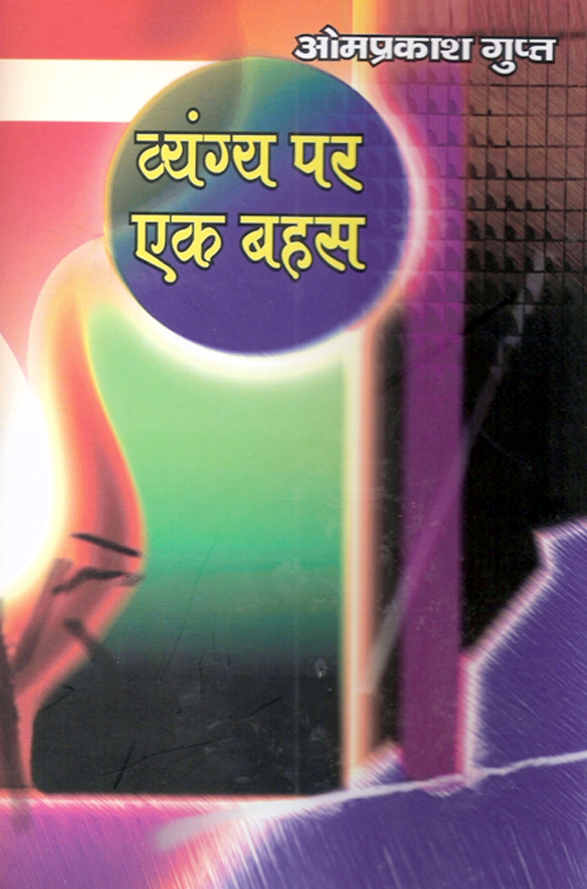Prof. Neelam Saraf
Title of the book: Vyangya par ek behas
(A Discussion on Satire)
Author: Dr. Omprakash Gupt
Language: Hindi.
ISBN: 978 93 802226 18 7
Price: Rs 150
Publisher: Hindi Book Centre,
Asaf Ali Road, New Delhi.
Doctor Omprakash Gupt has really established himself as a man of letters with dozens of books to his credit. In field of literary criticism, this is Dr. Gupt’s third book. Earlier he wrote two books related to criticism of Hindi poetry. In this book he focuses on Hindi prose. He defines and discusses Vyangya as per western and Indian traditions of literary criticism, and concludes that in modern literature the term has come to stand for satire as it has come to us from English literature.
He classifies types and techniques of satire in general and rejects the notion that Satire always makes us laugh. According to him, satire has to adhere to the red line -It can not be allowed to go non-serious. At times satire gives us pain as defined in Aristotle’s theory of Catharsis. He quotes profusely from all Hindi writers. He especially comments on achievements of all important Hindi satirists and yet finds best examples of satire in Plays, Short Stories and Novels that are not generally categorized as satirical. In this book, we find thought-provoking evaluation of three novels: Kamleshwar’s KITNE PAKISTAN, Vishnu Prabhakar’s ARDDHNARISHWAR and Kamal Kumar’s YEH KHABAR NAHI. In fact, the book has hardly left out any contemporary Hindi writer.
The book VYANGYA PAR EK BEHAS becomes all the more relevant in circumstances that have been brought to fore by contemporary instances of crime in politics and society. So far as partition is concerned, the following words continue to echo in our minds and ears: Taqsim na hota to puri kayamat bahut khubsurat hoti. When we are facing realities of Nirbhaya / Damini and so many others, what is left to smile or laugh at?
The mad man in Kamal Kumar’s novel Yeh Khabar Nahi cries out: Rise O Republic… Listen! It shall not die… I shall not allow it to die. This explains how author of this book has treated the SATIRE. Quoting from Alka Saravagi’s novel KALI KATAH VIA BYPASS, the author concludes that our problems started the moment we began to adopt bypasses and shortcuts.
The author tries to elicit answer to the simple question: What are the causes of our moral degradation? The concluding chapter titled Kahan Jaen Hum, sums up the whole debate: We have to establish and re-establish dying moral values. Literature has to go in quest of moral values. Literature which deviates from this duty has no right to be called as Literature avers Dr. Gupt.
(The author is Dean Academic Affairs, University of Jammu)


